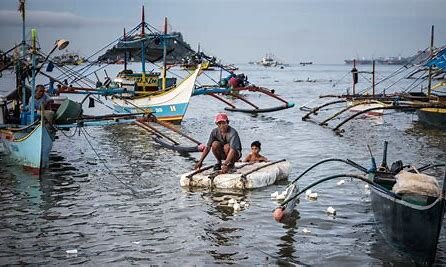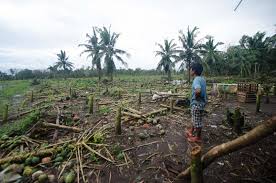Luke Allen
Military Political Analyst
Makati, Manila
lukeallenmanila@journalist.com
Manila, May 28, 2024—The Philippine government has strongly protested China’s unilateral imposition of an annual fishing ban that extends into the Philippines’ Exclusive Economic Zone (EEZ). This ban, a recurring flashpoint in the ongoing South China Sea dispute, started on May 1 and will last until September 16, sparking diplomatic tensions between the two nations over contested waters.
China’s Ministry of Agriculture and Rural Affairs announced the fishing moratorium in early April, citing the need to preserve marine resources. The ban encompasses areas of the South China Sea, including parts of the West Philippine Sea, which fall well within the Philippines’ 200-nautical-mile EEZ as defined by the United Nations Convention on the Law of the Sea (UNCLOS).
In a formal statement, the Philippine Department of Foreign Affairs (DFA) condemned the fishing ban, labeling it as an “illegal assertion of maritime authority” and a “blatant violation of Philippine sovereignty.” The DFA emphasized that the ban contravenes international law, including the 2016 Permanent Court of Arbitration (PCA) ruling in The Hague, invalidating China’s expansive claims in the South China Sea.
“We urge China to respect Philippine sovereignty and adhere to international law,” the DFA statement read. “The unilateral imposition of a fishing ban within our EEZ is an affront to our rights and duties as a coastal state. We call on China to cease illegal actions that breach our sovereignty and undermine regional stability.”
The 2016 Permanent Court of Arbitration (PCA) ruling, a landmark decision that favored the Philippines, affirmed its sovereignty over its EEZ and condemned China’s construction of artificial islands and other activities in the disputed waters. However, China rejected the ruling, arguing that the PCA had no jurisdiction over the matter and has continued asserting its claims through various means, including the annual fishing ban.
The DFA’s protest is backed by several Philippine lawmakers and maritime experts, who view China’s actions as part of a broader strategy to assert control over the South China Sea. “This fishing ban is not about marine conservation; it’s about power projection,” said Jay Batongbacal, a maritime law expert and director of the University of the Philippines Institute for Maritime Affairs and Law of the Sea. “China is using its domestic laws to enforce its claims, disregarding international law and the rights of other nations.”
The imposition of the fishing ban has not only sparked diplomatic tensions but also drawn criticism from local fishing communities and industry groups. These communities, already struggling with the impact of climate change and overfishing, are now further burdened by the restrictions. The Philippines’ fishing industry, particularly in Palawan, Zambales, and Pangasinan provinces, relies heavily on the rich fishing grounds within the West Philippine Sea. Fishermen in these areas have reported harassment by Chinese coast guard vessels, further complicating their livelihood.
“Our fishermen are being driven away from our own waters,” said Fernando Hicap, chairperson of the national fisherfolk organization Pamalakaya. “The government must take stronger measures to protect our fishing communities and assert our rights.”
The Philippine Coast Guard (PCG) has increased patrols in the West Philippine Sea to safeguard Filipino fishermen and assert the country’s maritime rights. However, the PCG faces significant challenges due to the presence of Chinese coast guard and maritime militia vessels, often outnumbering and outmaneuvering Philippine patrols.
The international community has not turned a blind eye to the escalating tensions. The United States and several Southeast Asian nations have expressed their unwavering support for the Philippines, reiterating the importance of upholding international law and freedom of navigation in the South China Sea. The U.S. State Department issued a statement calling China to “respect the rights of all nations and refrain from provocative actions that undermine regional peace and stability.” This global solidarity underscores the gravity of the situation and the need for a peaceful resolution.
As the fishing ban continues, the Philippines is exploring diplomatic avenues to address the issue, including raising it at multilateral forums such as the Association of Southeast Asian Nations (ASEAN) and the United Nations. The DFA indicated that it would seek to build a coalition of like-minded states to pressure China into compliance with international maritime law.
Amidst the ongoing struggle for control in the South China Sea, a vital waterway rich in resources and strategic significance, the Philippines stands resolute. The standoff over the fishing ban is a testament to its unwavering commitment to defend its maritime rights, even as it navigates the complexities of regional geopolitics and the assertive posture of a rising China.














